The holiday season brings family gatherings, celebrations, and often, the need to travel. When you have a newborn, the thought of packing up and hitting the road can feel daunting. But with the right preparation and mindset, you can make the journey smooth for everyone.
This guide walks you through what you need to know about traveling with your newborn during the holidays. You'll learn how to prepare, what to pack, and how to handle common challenges that come up along the way.
When to Start Traveling with Your Newborn
Most pediatricians agree that healthy, full-term babies can travel within the first few weeks of life. However, you should consult your doctor before booking any trips. Your baby's immune system is still developing during the first two months, which makes them more vulnerable to germs and illness.
For air travel, many airlines allow infants as young as two days old to fly, though most experts recommend waiting until your baby is at least two to three months old if possible. This gives you time to establish feeding routines and allows your baby to receive their first round of vaccines.
If you must travel during those first few weeks, car trips give you more control over the environment and allow for flexible stops as needed.
Planning Your Holiday Trip
Good planning makes the difference between a stressful journey and a manageable one. Start your preparations at least two weeks before your departure date.
Choose Your Travel Times Wisely
Travel during your baby's natural sleep times when possible. Many parents find that early morning or late evening flights work well because babies often sleep through these periods. For car trips, departing during nap time or after bedtime can mean hours of peaceful driving.
Weekend and holiday peak travel times bring crowded airports, long security lines, and full flights. If your schedule allows, travel on off-peak days. Your stress level will thank you.
Book Accommodations with Baby in Mind
Not all hotels or rental properties work well for families with newborns. Look for places that offer:
- Quiet rooms away from elevators and ice machines
- Temperature control you can adjust
- Blackout curtains or shades
- Enough space for a portable crib
- A mini fridge for storing breast milk or formula
Call ahead to confirm that cribs are available and meet current safety standards. Some hotels charge fees for cribs, so ask about this when you book.
Packing for Your Newborn
Packing light seems impossible with a newborn, but you can strike a balance between preparedness and practicality.
Essential Documents
Keep these items in your carry-on or diaper bag:
- Your baby's birth certificate
- Health insurance cards
- Pediatrician contact information
- List of any medications or supplements
- Vaccination records
Clothing and Diapers
Pack one outfit per day plus three extra outfits. Blowouts happen, and you want backups. Choose clothes that layer so you can adjust to different temperatures.
Bring more diapers than you think you'll need. A good rule is one diaper for every hour of travel time, plus a full day's worth as backup. Add in a travel changing pad and a wet bag for soiled items.
Feeding Supplies
For breastfeeding mothers, pack:
- Nursing cover if you use one
- Breast pump and storage bags
- Nursing pads
- Nipple cream
For formula feeding, bring:
- Enough formula for the entire trip plus extra
- Clean bottles
- Bottle brush
- Portable bottle warmer (optional)
Pre-measured formula dispensers make mixing bottles easier while traveling. You can also ask flight attendants for warm water if needed.
Sleep Items
Your baby's sleep routine matters even more when you're away from home. Pack:
- Portable crib or bassinet
- Familiar sleep sacks or swaddles
- White noise machine
- Pacifiers (bring several)
Keep these items consistent with what you use at home. Familiar sleep cues help your baby settle in new environments.
During Your Journey
The actual travel day requires patience and flexibility. Your normal schedule will likely go out the window, and that's okay.
Air Travel Tips
Arrive at the airport early. Security takes longer with a baby, and you want time to feed and change diapers before boarding.
Feed your baby during takeoff and landing. Sucking helps equalize ear pressure and prevents discomfort. If your baby uses a pacifier, offer it during these times.
Most airlines allow families with young children to board early. Take advantage of this to get settled without rushing.
Pack your diaper bag with everything you need for the flight plus three hours extra. Delays happen, and you don't want to run short on supplies. Remember to pack one of your baby's favorite items like Hubble the Bear, so you can also cheer them up during the flight.
Car Travel Tips
Stop every two to three hours to feed, change, and let your baby move. These breaks also help you stay alert on the road.
Never leave your baby alone in the car, even for a minute. Temperature changes happen fast in vehicles, and safety always comes first.
Keep the car temperature comfortable. Babies can't regulate their body temperature as well as adults. Check your baby regularly to make sure they're not too hot or cold.
Position a mirror so you can see your baby's face while driving. This lets you check on them without turning around.
Managing Sleep at Your Destination
Sleep disruptions are common when traveling, but you can minimize them with a few strategies.
Set Up a Sleep Space First
When you arrive at your destination, set up your baby's sleep area before you do anything else. Make it as similar to home as possible. Use the same sheets, sleep sack, and white noise machine.
Keep the room dark for naps and nighttime sleep. If the room lacks good window coverings, bring clips to secure a dark blanket over the curtain rod.
Maintain Your Routine
Stick to your normal bedtime routine as much as possible. If you do a bath, book, and song at home, do the same while traveling. These familiar patterns signal sleep time to your baby.
Don't stress if naps get shortened or missed. Focus on protecting nighttime sleep, which matters more for everyone's wellbeing.
Time Zone Adjustments
If you're traveling across time zones, decide whether to adjust your baby's schedule or keep them on home time. For trips shorter than a week, staying on home time often works better.
For longer trips, adjust gradually. Shift feeding and sleep times by 15 to 30 minutes each day until you reach the new schedule.
Keeping Your Baby Healthy While Traveling
Your baby's immune system needs extra protection during travel.
Practice Good Hygiene
Wash your hands before touching your baby, preparing bottles, or handling food. Carry hand sanitizer for times when soap and water aren't available.
Wipe down airplane tray tables, armrests, and hotel room surfaces before your baby touches them. Bring sanitizing wipes for this purpose.
Limit who holds your baby. Well-meaning relatives may want to pass your newborn around, but you can politely decline. Your baby's health comes before hurt feelings.
Watch for Illness Signs
Monitor your baby for signs of illness during and after travel. Call your pediatrician if you notice:
- Fever (any fever in babies under three months requires immediate medical attention)
- Difficulty breathing
- Unusual fussiness or lethargy
- Refusal to eat
- Fewer wet diapers than normal
Safety Considerations
Safety remains your top priority throughout your trip.
Car Seat Rules
Your baby must ride in a car seat every time, no exceptions. This includes taxis, ride shares, and rental cars. If you're flying, consider bringing your car seat on the plane. It provides the safest spot for your baby during the flight.
Install your car seat correctly at each location. If you're unsure, many fire stations and police departments offer free car seat checks.
Hotel Room Safety
Hotel rooms aren't designed for babies, so you need to create a safe space:
- Keep the portable crib away from windows, curtain cords, and electrical outlets
- Check that the crib meets current safety standards
- Remove extra pillows, blankets, and decorative items from your baby's sleep area
- Keep small objects that pose choking hazards out of reach
- Test the room temperature and adjust as needed
Never place your baby to sleep in an adult bed, on a sofa, or on other unsafe surfaces.
The Value of a Portable Baby Monitor
A reliable baby monitor becomes essential when traveling with a newborn. You want to check on your baby without entering the room and potentially waking them. You also want the freedom to step outside the room or spend time in a separate area of your accommodation.
Many traditional baby monitors create problems when traveling. They require both the camera and monitor to connect to the same WiFi network, which doesn't work in hotel rooms where each device needs separate login credentials. Some hotels block the ports these monitors use. Other monitors have such short range that they disconnect the moment you leave the room.
These limitations force parents to either sit in the dark with their sleeping baby or skip the monitor altogether.
A Travel Monitor That Works Everywhere
The Hubble Connected GoBaby AI Cam solves the common problems that plague traditional monitors during travel. This portable monitor connects directly to your smartphone through the cellular network, which means it works without WiFi. You can monitor your baby from the hotel lobby, a restaurant, or anywhere with cell service.
The camera is small and light, which makes packing it simple. The magnetic base attaches to the included flexible tripod, letting you position it on a dresser, nightstand, or shelf. You can adjust the angle to get the perfect view of your baby's crib.
Features That Support Better Travel Sleep
The GoBaby AI Cam includes features designed to help your baby sleep well in new environments:
Two-way audio lets you soothe your baby with your voice without entering the room. This can help them settle back to sleep during brief wake-ups.
Night vision provides clear video even in complete darkness. You can check on your baby without turning on lights.
Temperature sensors alert you if the room becomes too hot or cold. Hotel room climates vary, and these sensors help you adjust conditions before your baby becomes uncomfortable.
Cry detection with smart notifications tells you when your baby needs you, even if you can't hear them from another part of the room.
Sleep tracking helps you understand your baby's sleep patterns during travel. The AI technology learns your baby's normal behaviors and can alert you to unusual activity.
The monitor stores video clips in the cloud, so you can review them later if needed. Some parents find this helpful for tracking how well their baby adjusted to the new environment.
Hotel Room Compatibility
The GoBaby AI Cam's ability to work in hotel rooms sets it apart from standard monitors. Hotel networks, which require you to accept terms and conditions through a web browser, typically block traditional monitor connections. The GoBaby AI Cam bypasses these issues through its cellular connectivity option.
You can also use the monitor in homes without WiFi, vacation rentals with spotty internet, and anywhere else your travels take you. This reliability gives you confidence that you'll be able to monitor your baby regardless of the technical setup at your destination.
Security and Privacy
When you're using any connected device to monitor your baby, security matters. The GoBaby AI Cam uses bank-level encryption to protect your video feed. Only you can access your camera through your secure login credentials.
The device doesn't share your data with third parties, and you control all video storage and deletion through the app.
Managing Family Expectations
Holiday travel often means staying with relatives, which brings its own challenges.
Communicate Your Baby's Needs
Let family members know your baby's schedule before you arrive. Explain that you'll need quiet space for naps and early bedtimes. Most people understand once you set clear expectations.
If relatives want to help, give them specific tasks. They can prepare meals, fold laundry, or entertain older children while you care for your newborn.
Stand Firm on Your Boundaries
You know your baby best. Don't let others pressure you into routines or practices that don't feel right. This includes:
- Wake windows and sleep schedules
- Feeding methods and timing
- Who holds the baby
- Health and safety practices
You can be polite while staying firm. A simple "We're doing what works for our family" shuts down most unwanted advice.
Preparing for the Unexpected
Despite your best planning, things will go wrong. Your flight gets delayed. Your baby refuses to sleep. You run out of diapers. These situations are frustrating but manageable.
Build in Buffer Time
Add extra time to every part of your journey. Leave for the airport earlier than you think necessary. Plan extra days on either end of your trip if possible. This buffer reduces stress when things don't go according to plan.
Pack a Backup Plan
Bring contact information for pediatricians near your destination. Research nearby stores where you can buy emergency supplies. Know where the closest urgent care or emergency room is located.
Having these details ready means you won't scramble if you need them.
Stay Flexible
Your baby won't follow your schedule, and that's normal. They might refuse to nap when you planned or get hungry at inconvenient times. Accept this reality and adjust rather than fighting it.
The more flexible you remain, the less stressed you'll feel. Your baby picks up on your emotions, so staying calm helps everyone.
After You Return Home
The trip doesn't end when you walk through your front door. Give yourself and your baby time to readjust.
Expect some sleep regression in the first few days back. Your baby needs time to resettle into their home routine. Stick to your normal schedule and be patient.
Catch up on rest when you can. Travel exhausts everyone, and newborn care requires energy. Accept help from your partner, family, or friends.
Making Holiday Travel Work
Traveling with a newborn during the holidays takes effort, but it's doable. Focus on the essentials: keeping your baby fed, clean, and rested. Everything else is secondary.
The key is preparation without perfectionism. You'll forget things. Plans will change. Your baby won't cooperate at times. None of this means you've failed.
With the right tools, including a reliable portable monitor, you can travel with confidence. You'll create holiday memories with family while meeting your baby's needs.
Start with short trips to build your confidence. As you and your baby get more comfortable with travel, longer journeys become easier.
The holiday season comes once a year. With good planning and realistic expectations, you can enjoy it with your newborn by your side.


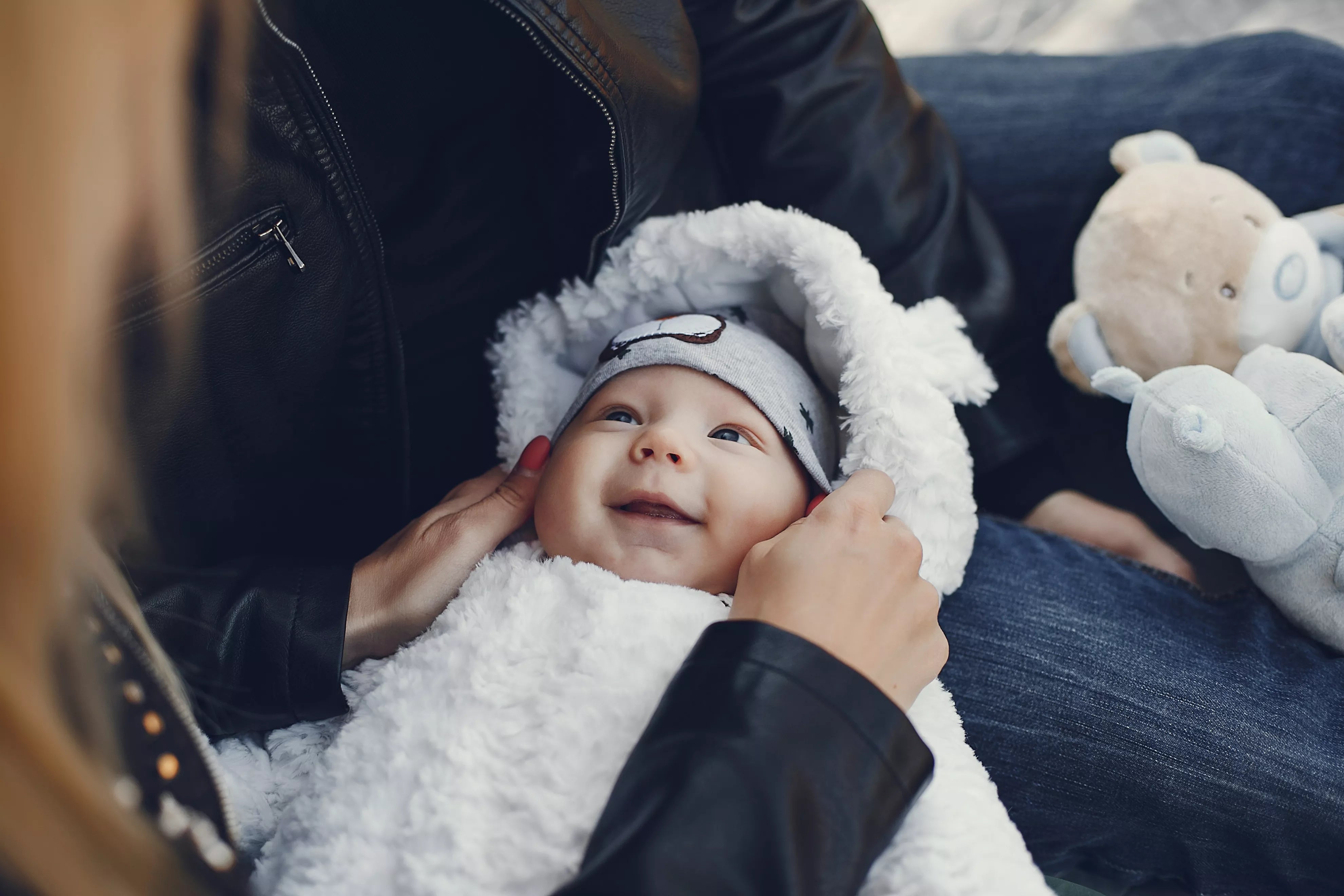

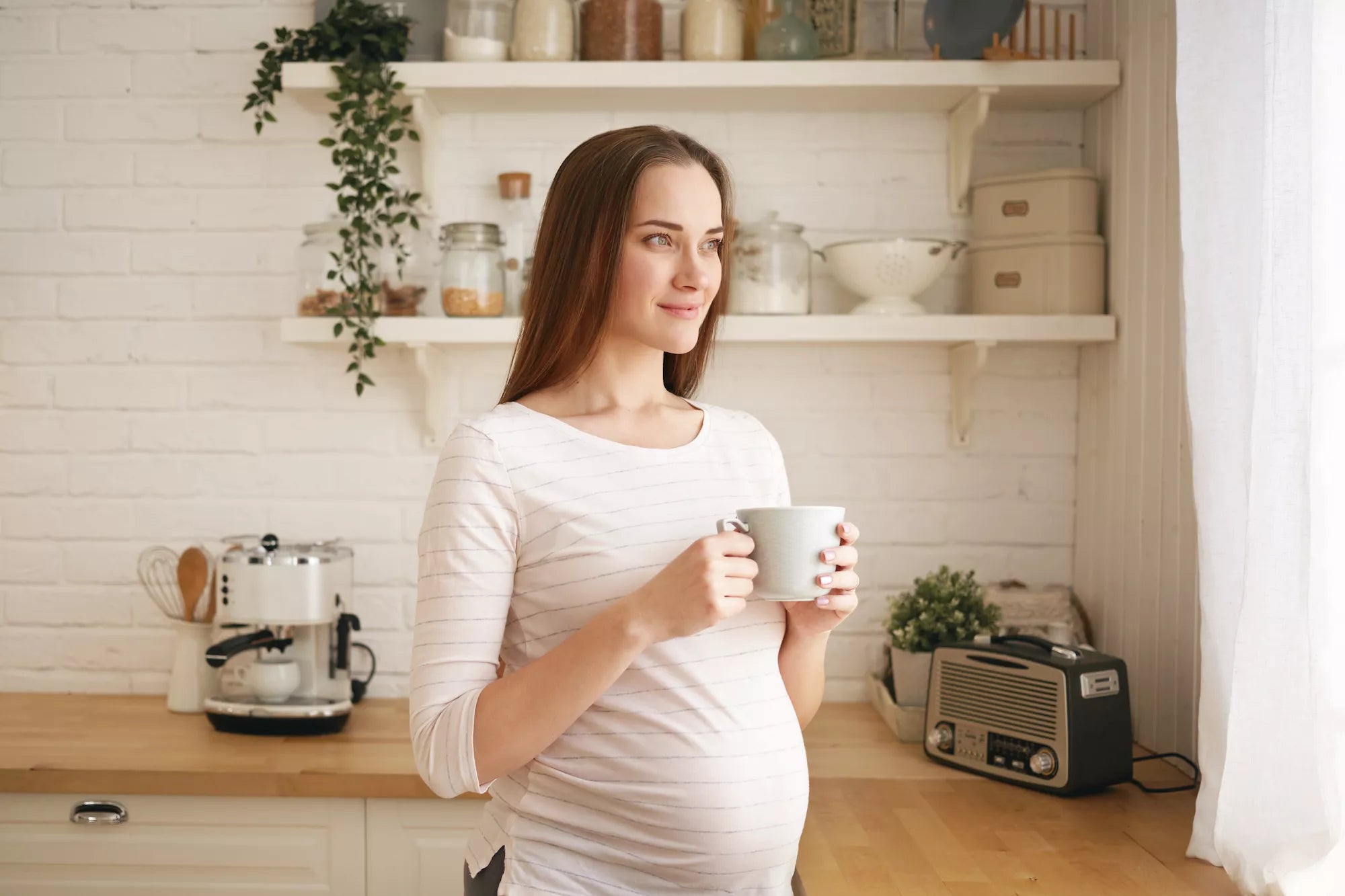
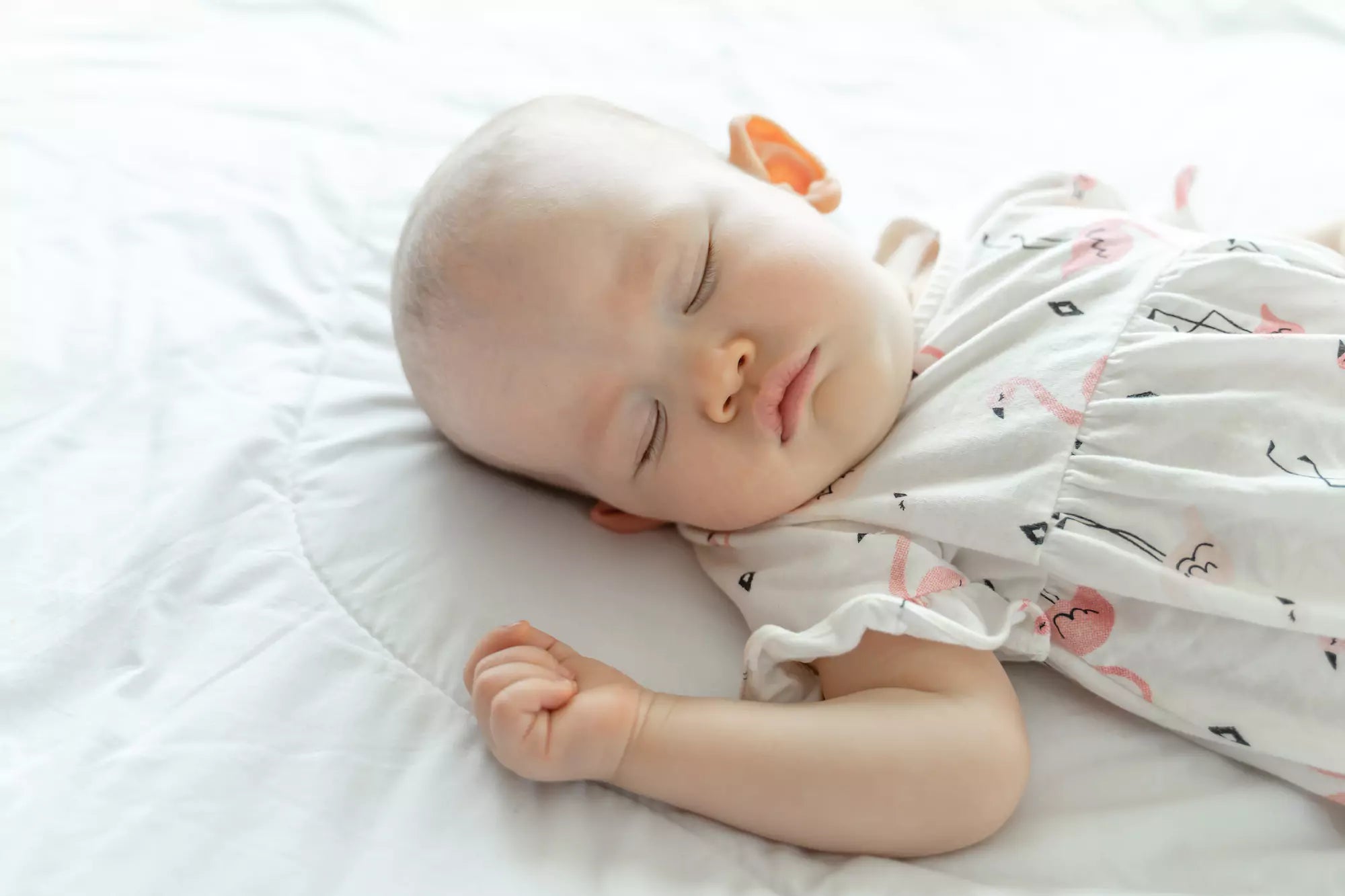

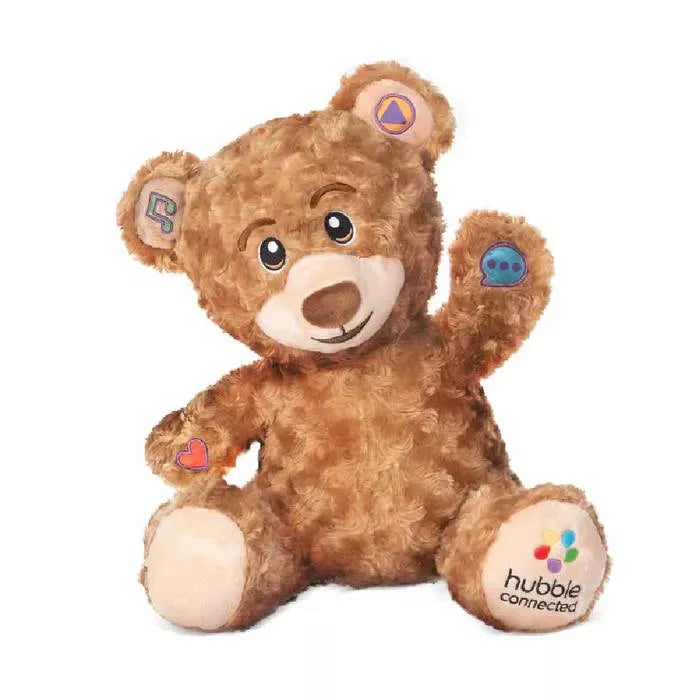
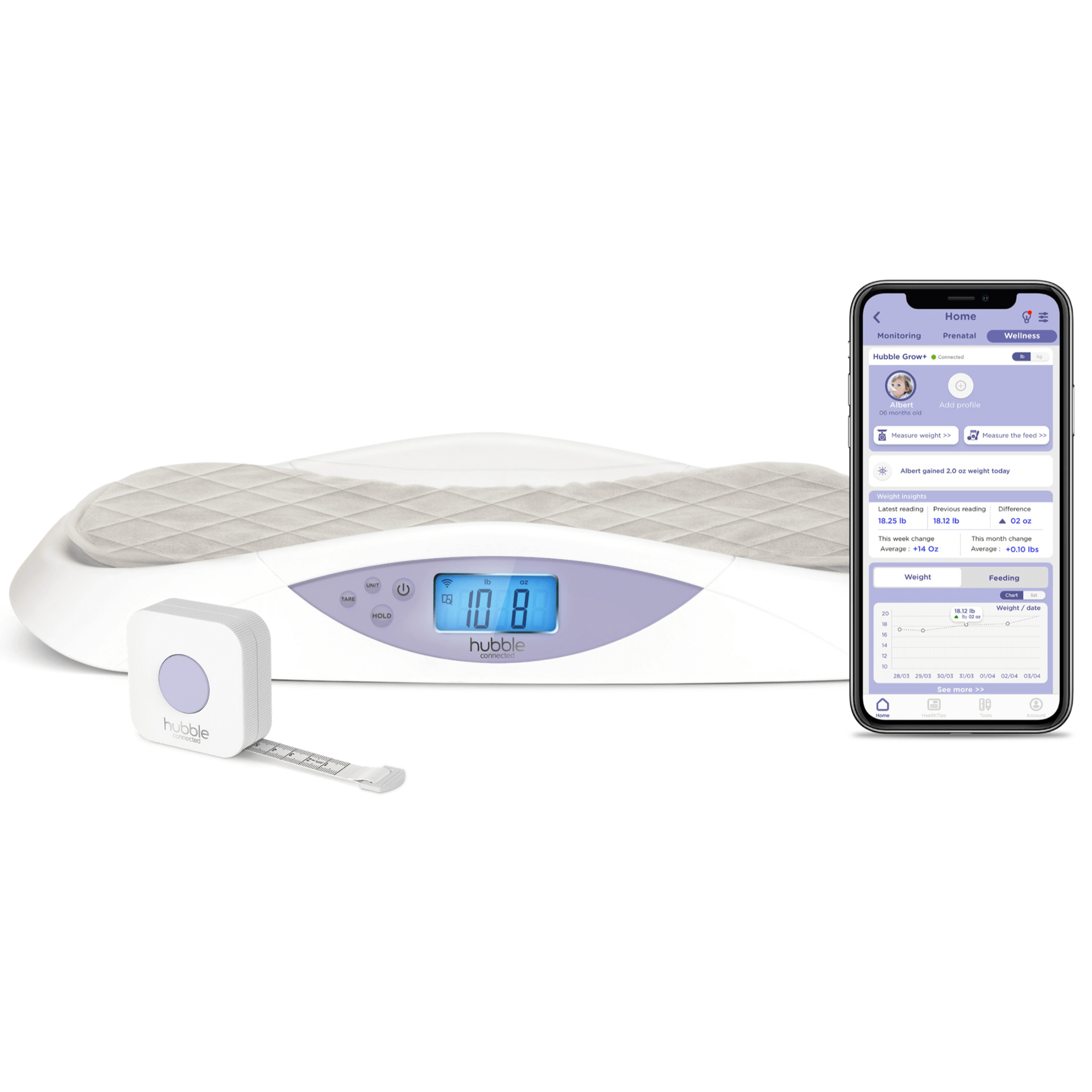
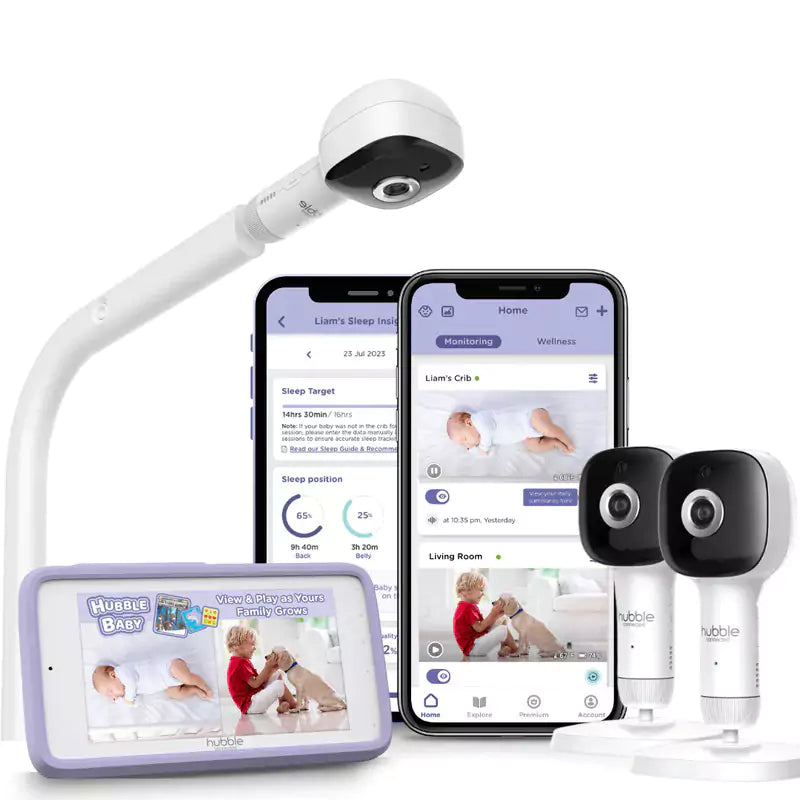
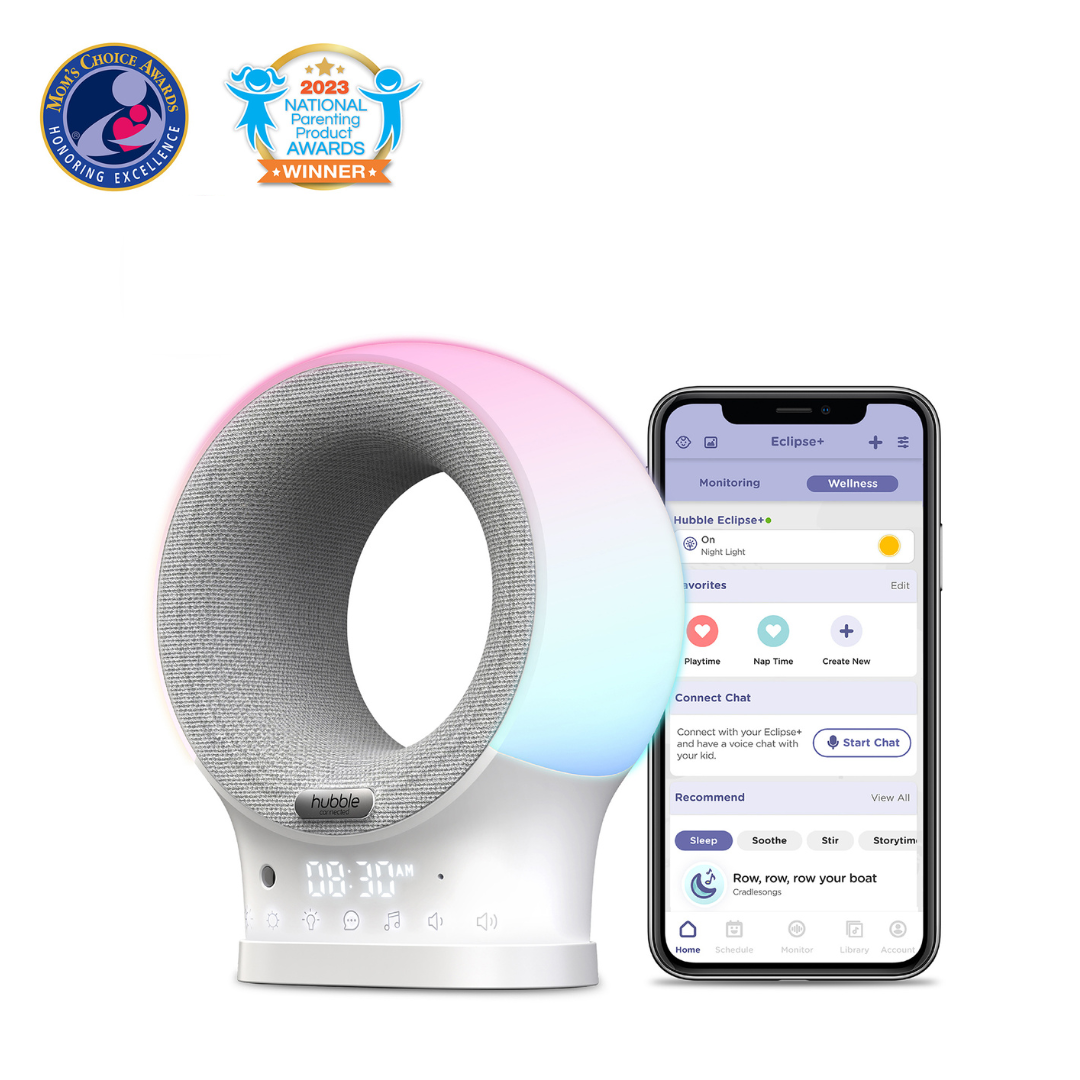

Share: